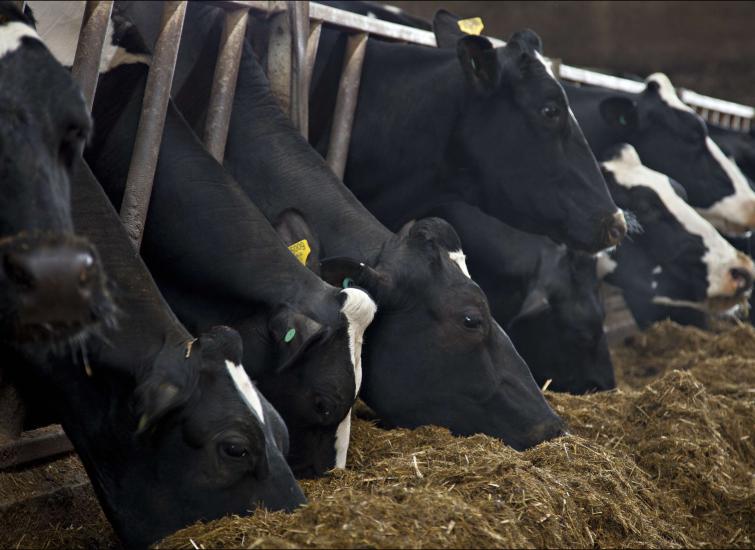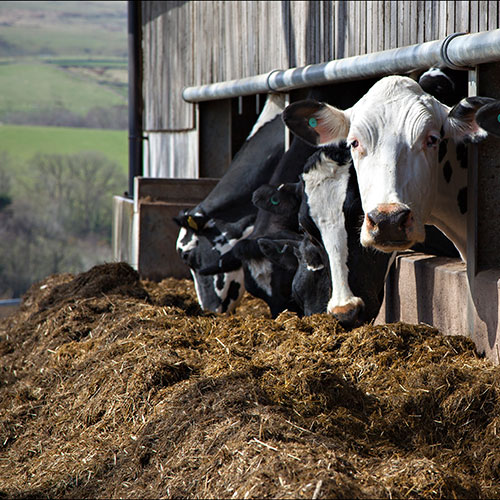After Advanced Nutrition's advice and using DC X-Zel for our transition cows we have found they are fitter and healthier. They don’t lose much condition after they calve, right through to lactation. They just calve down better.
Keeping Dairy Cows Cool
Maintaining yield, quality and fertility in a commercial farm trial throughout summer with Equaliser® CoolCow.

Rising summer temperatures can impact dairy cows in many ways. Cows bred for temperate regions (Holstein. Jersey etc.) are less able to cope with rising temperatures than their tropical counterparts and this has become more evident as yields have risen leading to metabolic heat stress as well as environmental heat stress. Added to this, elevated temperatures are more common now, and arguably at earlier and later points in the year predisposing cows to potential heat stress impacts more often.
Farm Facts
495 Holstein cows housed year-round in two free stall barns in north west England
Excellent management and performance:
- 9,500 litres (yearly average milk yield)
- 3. 20% Protein
- 3.70% Butterfat
- pTMR fed with feed to yield in parlour via computerised system
High roof barn, wide passageways, multiple easy access clean drinkers, mechanical ventilation via fans.
TRIAL OVERVIEW:
Sixty multiparous (av. 2.7 lactations), early lactation cows (av. days in milk (DIM) 72, yield 39 l/day) were selected, blocked (paired) for DIM and milk yield and randomly assigned to one of two treatments. The trial took place from June to August 2018 with the basal ration identical between treatments with 100g/cow/day Equaliser® CoolCow added to the trial diet via TMR, control had no buffer added. Milk yield recorded daily and summarised per week. Milk components measured before treatment and then at four and eight weeks of trial via NMR milk recording. Data logger in the barn recorded temperature and relative humidity at 15-minute intervals throughout the trial. All insemination work was undertaken by Genus RMS and logged throughout the trial.
Temperature Humidity Index (THI) accounts for the combined effects of environmental temperature and relative humidity on cattle to assess the risk of heat stress. Heat stress in dairy cows is recognised as impacting production (yield and milk quality) when the average daily THI exceeds 68. Further research has shown the impact on fertility traits to start from as low as daily average THI of 57 (oestrus activity reduces) with impacts on conception rates observed from a daily average THI of 65. Figure one shows the pattern of daily average THI throughout the trial period. The highest weekly average THI was 69.6 during week 4 of trial (23.2°C at 53% RH) with peak THI of 72 (24.9°C at 52% RH) recorded on day 28 of the trial.

Equaliser® CoolCow fed cows demonstrated a numerically higher
(1.5kg/cow/day) fat and protein corrected milk yield (FPCM) during the heat stress conditions of week 4 and 0.5kg/cow/day higher during week 8 (figure 3).
Equaliser® CoolCow fed cows did not experience a significant drop in milk fat during week 4 of trial
Control group experienced milk fat reduction of 0.34% during week 4 of trial (THI 69.6)
Days to conception were 17 days fewer for Equaliser® CoolCow fed cows (figure 4)

〈 BACK




